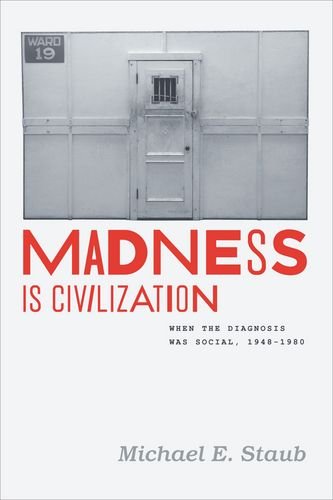

Most ebook files are in PDF format, so you can easily read them using various software such as Foxit Reader or directly on the Google Chrome browser.
Some ebook files are released by publishers in other formats such as .awz, .mobi, .epub, .fb2, etc. You may need to install specific software to read these formats on mobile/PC, such as Calibre.
Please read the tutorial at this link: https://ebookbell.com/faq
We offer FREE conversion to the popular formats you request; however, this may take some time. Therefore, right after payment, please email us, and we will try to provide the service as quickly as possible.
For some exceptional file formats or broken links (if any), please refrain from opening any disputes. Instead, email us first, and we will try to assist within a maximum of 6 hours.
EbookBell Team

0.0
0 reviewsIn the 1960s and 1970s, a popular diagnosis for America’s problems was that society was becoming a madhouse. In this intellectual and cultural history, Michael E. Staub examines a time when many believed insanity was a sane reaction to obscene social conditions, psychiatrists were agents of repression, asylums were gulags for society’s undesirables, and mental illness was a concept with no medical basis.
Madness Is Civilization explores the general consensus that societal illsfrom dysfunctional marriage and family dynamics to the Vietnam War, racism, and sexismwere at the root of mental illness. Staub chronicles the surge in influence of socially attuned psychodynamic theories along with the rise of radical therapy and psychiatric survivors' movements. He shows how the theories of antipsychiatry held unprecedented sway over an enormous range of medical, social, and political debates until a bruising backlash against these theoriespart of the reaction to the perceived excesses and self-absorptions of the 1960seffectively distorted them into caricatures. Throughout, Staub reveals that at stake in these debates of psychiatry and politics was nothing less than how to think about the institution of the family, the nature of the self, and the prospects for, and limits of, social change.The first study to describe how social diagnostic thinking emerged, Madness Is Civilization casts new light on the politics of the postwar era.